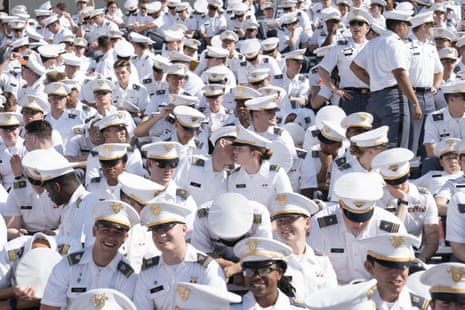Why Graham Parsons Resigned from West Point: Academic Freedom and Its Consequences

The recent resignation of Graham Parsons from the US Military Academy at West Point has sparked widespread discussion about academic freedom and institutional integrity in American military education. As a distinguished professor of philosophy, Parsons spent 13 years shaping the minds of future Army officers. His departure, however, raises important questions about the direction of West Point under new political leadership.
The Turning Point at West Point
Graham Parsons resigned after expressing deep concerns over the dramatic changes implemented at West Point during recent political shifts. In an essay published for major outlets, including The Guardian, Parsons criticized the academy for straying from its core educational mission. He argued that changes, introduced after directives by the Trump administration and Defense Secretary Pete Hegseth, led to the censorship of academic content.
These mandates prohibited the discussion of so-called "un-American" theories, such as gender ideology and critique of America's founding documents. Parsons observed that key courses were removed, influential authors erased from syllabi, and faculty faced new restrictions on public scholarship. He described this as an aggressive overhaul that undermined both educational quality and academic independence at West Point.
Academic Freedom Under Pressure
Parsons’ resignation highlights the ongoing struggle for academic freedom in military institutions. According to a detailed piece by Daily Nous, the faculty at West Point experienced sweeping new policies. Professors were ordered to seek departmental approval before publishing research, speaking at conferences, or posting about their work online, especially if it conflicted with the administration's political views. These measures made it difficult for faculty like Parsons, whose work examined controversial subjects, to continue scholarly activities without fear of censorship.
The new environment at West Point appears drastically different from its past. Previously, faculty felt empowered to encourage critical debate on topics essential for national leadership. Now, the narrowing of permitted content threatens the academy’s role as a center for open, nonpartisan education.
Broader Implications for US Military Education
The resignation of Graham Parsons from West Point is more than an individual protest. It signals a larger trend of educators facing pressure within institutions that traditionally valued intellectual rigor and diversity of thought. As noted in the New York Times coverage, similar constraints have surfaced at multiple military and civilian academies, raising alarms about the future of academic liberty in the United States.
These developments have prompted debate within the military, academia, and the public about the balance between political oversight and institutional autonomy. The choices made today will likely shape the leadership qualities of future officers and define West Point’s reputation for years to come.
Conclusion: Defending Educational Integrity
Graham Parsons’ decision to leave West Point stands as a powerful reminder of the importance of protecting academic freedom, especially in institutions entrusted with preparing the nation’s leaders. As this story unfolds, it invites educators, policymakers, and citizens to reflect on the values that should guide American education. For more insights on academic freedom and its challenges, consider exploring the detailed reports linked above.